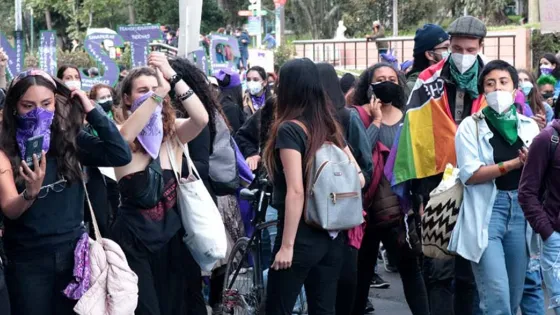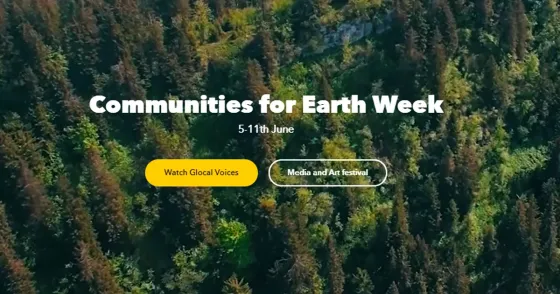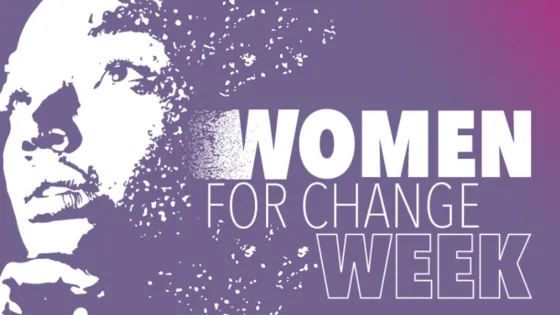ForumCiv believes in the vital role of civil society in contributing to the fulfillment of human rights, particularly by focusing on non-discrimination and active popular participation that makes democracy possible. We prioritize placing rights-holders as actors of change who are capable of making their free choices and have agency in creating the changes they want to see.
Consequently, our work is guided by Rights-Based Approach, Do No Harm framework and Development Perspectives.
Through a Rights-Based Approach, we focused on:
- ensuring meaningful participation of rights-holders in implementing, monitoring, and evaluating a given initiative.
- advocating for non-discrimination to ensure equal access to rights for all individuals, regardless of their gender identity and expression, sexual orientation, nationality, race, ethnicity, class, disability, age, among others, have full access to their rights.
- identifying where accountability lies. This means acknowledging who has the responsibility for protecting and fulfilling the rights of the rights-holders. As well as who is responsible for actions done against its citizens.
- promoting transparency as a key democratic component in governance and partnerships between rights-holders, civil society organizations, duty-bearers, and other relevant actors. In other words, we advocate for honest and proper management of public resources and the provision of public information from state bodies and private entities that manage fiscal resources and/or natural resources in a truthful, timely, understandable, and reliable manner.
Applying the Do No Harm framework means that ForumCiv acknowledges its impact within the context(s) of operation. We understand that the details of our interventions are crucial, and every action will have consequences.
Our development perspectives
Gender Equality and Equity Development Perspective
Gender equality is a human rights and power issue. Achieving gender equality is a matter of ensuring a just and equitable access and distribution of influence, resources and opportunities within society. It is a pre-condition for sustainable development from a Rights-Based Approach and Do No Harm framework.
At ForumCiv, we apply a Gender equality and equity perspective to understand what produces gender inequalities, discriminatory practices, power dynamics, and power structures within the organization and in a specific context. Assess the implications of any planned actions, including legislation, policies or programs, in any area and at all levels. Include the concerns and experiences of different people as an essential part of the design, implementation, monitoring, and assessment of policies and programs in all political, economic, and social spheres. Identify and/or design strategies and mechanisms to help all people, regardless of their sex assigned at birth, sexual orientation, gender identity and expression, to access, influence, and exercise control over their rights, lives, resources, and democratic processes.
In this way, gender can effectively mainstream into all aspects of an organization’s strategies, initiatives, culture, systems and operations, contributing to all people, regardless of their sexual orientation and gender identity and expression, accessing, influencing and exercising control over their rights, lives, resources and democratic processes.
Also, we use an intersectional approach in our gender equality and equity perspective.
What is intersectionality?
An intersectional perspective helps us see how different forms of oppression, such as based on nationality, race, ethnicity, class, sexual orientation, gender identity, disability, age, political ideology, or religion, are interconnected and exacerbate each other. It allows us to understand power dynamics and work towards changing them. ForumCiv employs an intersectional analysis to better understand the complexity of people's lives and create more effective interventions.
Conflict Sensitivity and Transformation Development Perspective
Conflict is a complex issue that requires a sensitive approach but is also an opportunity for development and cooperation. Within a society, violence is not always physical but can also manifest itself in cultural attitudes, beliefs, and behaviors that justify structural discrimination. This leads to some groups being granted privilege whilst others are oppressed. Women, girls, and LGBTIQ+ people are particularly affected by conflict, as they are often not well represented in peacebuilding processes.
At ForumCiv we apply a Conflict sensitivity and transformation perspective to ensure that our operations and interventions understand the different dynamics of the context; monitoring and evaluating the quality of our actions so we can reduce the risk for rights-holders in situations of risk for conflict, ongoing conflict and post-conflict; carrying out multiple stakeholder analyses in all its work, different societal stakeholders can play crucial roles in conflict and its transformation; supporting rights-holders in their work for changing discriminatory structures, addressing the attitudes, behaviours and beliefs that led to those structures; transforming those negative attitudes into a collaboration aiming to strengthen democracy and human rights.
Environmental and Climate Justice Development Perspective
We are in an ecological and climate emergency in which those who least contributed suffer the most. Environmental and Climate justice is a race and gender issue, it is an equity and equality issue. As a result of our man-made, exploitative systems, resources and power are unequally distributed.
Applying the Environmental and Climate Justice perspective implies conducting context analyses to identify the distribution of burdens of the climate crisis, access to territories and biodiversity, transport and trade systems, and livelihood conditions affecting rights-holders; recognizing how climate change can exacerbate inequitable social conditions, affecting the least responsible and those with less capacity and resources to deal with the impacts of the climate crisis; analyzing the level and type of rights holders' participation in the environmental and climate decision-making process directly involving them; and assessing the right-holders' capacities (freedom and power to act) to fulfill their needs and enjoy their fundamental rights.
Thematic Weeks

Taking action against gender-based violence
Why is gender-based violence a matter of democracy and human rights? A week for discussions and advocacy

Communities for earth week
How can fighting for environmental and climate justice address our current climate induced emergency?

Women for Change Week
On the occasion of International Women´s Day, on March 8, ForumCiv has prepared a series of activities during the whole week, which has been established as the Women for Change Week.